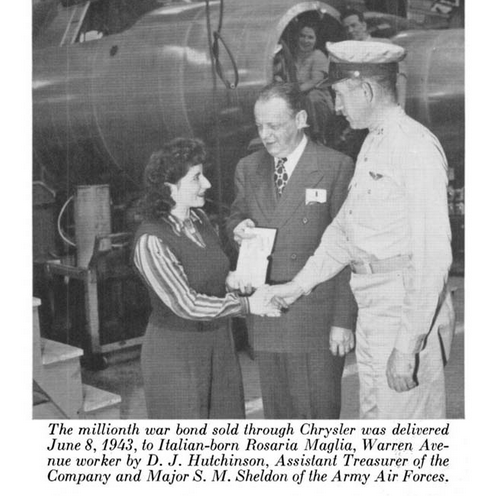Except that PLUNDER and VARSITY were real things that happened. The "Twilight of the Gods" turned out to be grandiose fantasy.
We don't write much about the combined assault on the Rhine by 21st Army Group (including US 9th Army), which led to the greatest opposed river crossings in historys. (In the interests of accuracy i hyperbole, it should be noted that any given assault crossing the Yangzi was probably a bigger deal in terms of water work, but the Mandate of Heaven has not yet been transferred by a modern mechanised army.) That a vast army, supported by enormous logistical preparations, closed the world's eleventh-largest river and fought its way across against the resistance of the army of the world's second largest economy, should be a big deal.

The problem was that it was dead easy, so no-one cares about it, which is why this post is two weeks late. (Apart from yours truly having to deal with a congenital lack of labour in the Canadian economy that somehow does not show up as a "labour shortage.") This is because, as it turns out, "Gotterdamerung" springs from
Snorri Sturlusson's head. Gods and heroes heroes may go down in glorious last stands, but the spear carriers
have made a discrete departure.
Germany, ever so quietly, was going from
this to
this. Germans, actual living Germans, had learned a lesson that the rest of us could stand to remember. "Blood and nation" are not things immanent in us, unalterable and compelling. Trapped by an idea? Defect in your head, hollow out your will to be a German landser, drag your feet until the tail of the column turns the corner ahead, leave your rifle by the side of the road.
Congratulations: you're a "straggler." Keep it up for eight weeks more, and you'll be a live straggler. It's nothing to be proud of later. Lost causes flourish in romantic legend; not the men who kept their heads down and came home to their families --or made new ones. Spring is coming, the world needs to be renewed, and the glorious dead will make no babies.
For those who cling to lost causes, the first week of April is bitter. One-hundred fifty years ago, the Confederate States of America collapsed; 75 years ago, the
Wehrmacht was vanishing, tens of thousands, perhaps hundreds of thousands of men simply not on the rolls.
 |
| That's the German Fifteenth Army under watch below. |
On the other hand, OPERATION KIKUSUI was 75 years ago. Another of the horrifying moral aporia of the world war, the attack of the floating crysanthenums is not easy for me to parse. The young men who piloted the suicide bombers do not seem to have been particularly traditionalist, nationalist or right wing. It is certainly not very helpful to focus on the supposedly fixed essentials of Japanese character to explain them, and it certainly is possible to frame a narrative around inescapable social pressure to commit suicide, which is pretty horrible in its own right.
The kamikazes flew while the German and Confederate armies were disintegrating. I'm not going to present a half-baked explanation for this, only point to it as a problem. The "national character" thing usually invoked does not convince. I grew up on the Pacific shore, after all, surrounded by Japanese Canadians and German Canadians, and on and on, so I can claim some experiential credibility for my skepticism. So could Californians, which I think might explain why the actual response to the kamikazes proved so ambiguous in the end.
That is, twenty years before San Francisco became American, it looked out on a Pacific where there were already sealing plantations and offshore fisheries off multiple future Australian and American states, one Canadian province, New Zealand, various pelagic nations and "
overseas territories," The Empire of Japan and the Kingdom of Hawaii. The process by which the only autochhthonous state formation in a non-state ordered society became the American territory of Hawaii, while New Zealand
became a resolutely British nation. How? It's all so slippery. But disintegrating armies have to fit in here somehow..
This is an introduction to a discussion of floating and other temporary bridges.






















